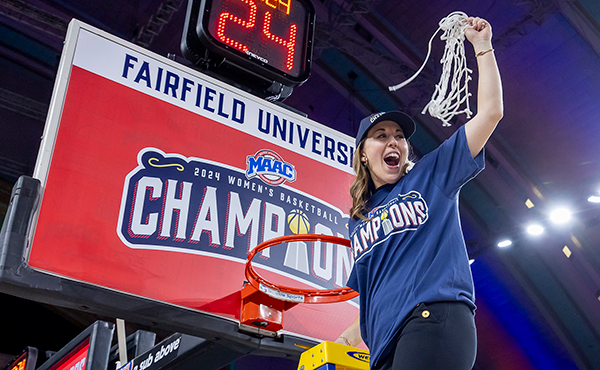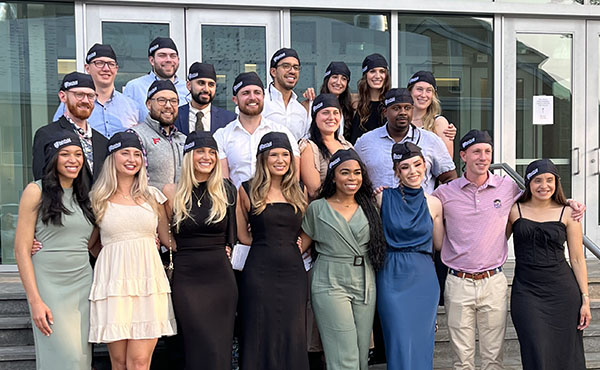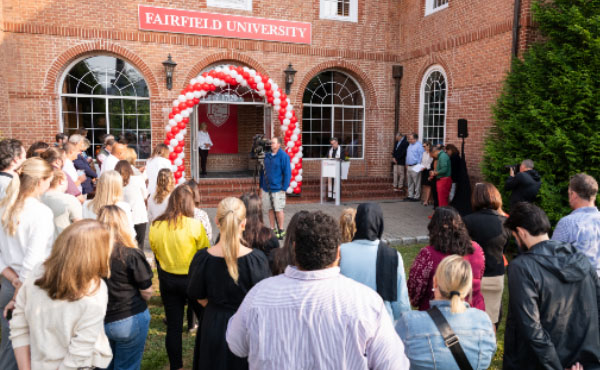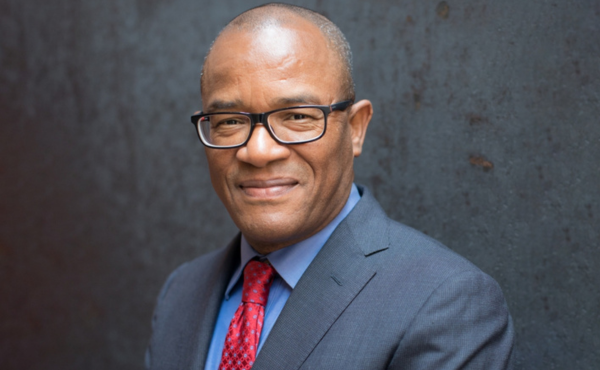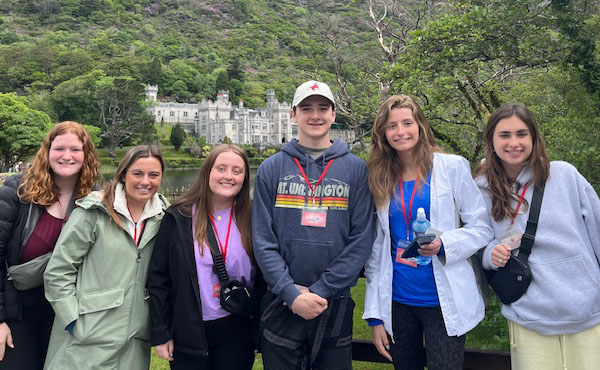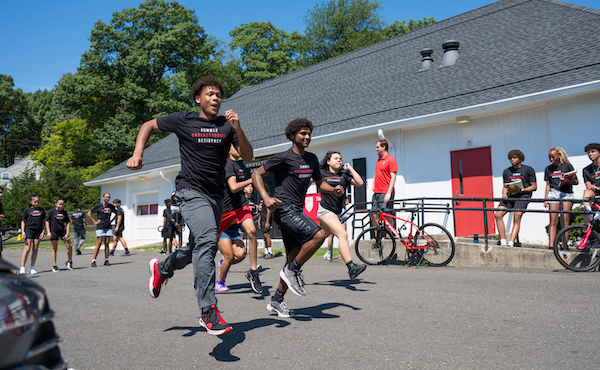One morning last summer, engineering student Gabriel Grant ’23 demonstrated a first-person view of a drone flying across campus. Wearing goggles, his fellow researchers watched as the drone zipped around, over buildings, lawns, and walkways.
The flight over Stag Country was part of an ongoing drone navigation research study by the School of Engineering and Computing, in which Class of 2025 undergraduate researchers Lorenzo Arabia, Joseph Borges, Luke Conte, Aldino Guadagnino, and Claudia Hepfer are working with associate professor of electrical and biomedical engineering Djedjiga “Gigi” Belfadel, PhD.
Their research is focused on developing an alternative navigation system that allows drones to execute autonomous missions with high precision, even in environments that lack reliable GPS (Global Positioning System) signals.
Dr. Belfadel, whose particular area of expertise is drone navigation, noted that the inspiration for this research stemmed from the potential to use unmanned aerial vehicles (drones), in disaster response, defense, and entertainment.
“Our research is groundbreaking,” she said, “because it directly tackles a significant limitation in drone navigation, that is, its dependency on the availability of GPS.” The team’s research led to the development of a navigation system capable of operating in the absence of a GPS signal, an improvement in the reliability and effectiveness of drone performance, which, according to Dr. Belfadel, “becomes extremely important in disaster response or defense, where GPS signals may be unreliable or unavailable.”
“Central to this project,” she explained, “is the design of an advanced sensor fusion algorithm, which operates exclusively on data obtained from onboard sensors. This ensures continuous drone operations regardless of GPS availability. A critical aspect of our research involves testing these algorithms under real-world conditions. However, such validation necessitates tests made with commercially available drones.”
With this in mind, Dr. Belfadel and the engineering students adopted an innovative, cost-effective strategy to design and build their own test drones, with the dual purpose of creating a critical platform for testing navigation algorithms while also addressing an existing gap in the availability of affordable, U.S.-made drones for research and educational pursuits.
During the program’s initial phase, students went through vigorous training to obtain their FAA drone licenses. Under Dr. Belfadel’s instruction, they then wired, soldered, and assembled two fully operational drones, printing parts on the University’s 3D printers and equipping the devices with software to collect in-flight data.
Once assembled, the team took the drones outdoors to conduct maneuverability tests, following FAA guidelines. During flight sessions, they collected data that allowed them to evaluate each drone’s performance and operational coordination. At the conclusion of every flight, the team conducted a structured debrief to discuss accomplishments and areas for improvement.
This student-led research initiative is significant, said Dr. Belfadel, in that it offers students practical, hands-on experience in UAV (Unmanned Aerial Vehicle) technology. Poised to revolutionize the use of drone navigation, she described how the team’s research “creates a system that allows drones to operate safely, dependably, and autonomously in areas that lack GPS signals. Moreover, the drones built by the students provide a platform for gathering meaningful data, which is crucial for testing and refining our navigation algorithms.”

